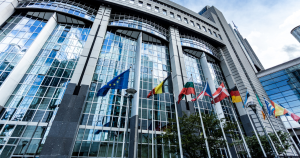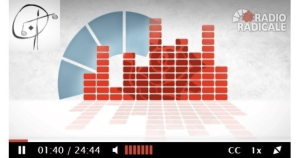Brussels – Rome, 22 April 2023
This 22 April 2023 marks the 53rd anniversary of the International Mother Earth Day. It was not by chance tha this day was chosen, but rather to connect this anniversary to the spring equinox – recurring every 21 March – that represents the symbol of flowering and prosperity that our planet constantly offers us. The birth of this anniversary refers to the publication of the book “Silent Spring” by American biologist Rachel Carson in 1962. Through scientific research and analysis, she affirmed that DDT and plant protection products were simultaneously damaging the environment and all living beings in it – including us humans.
During that decade, dissemination activities started through events and conferences on the need to honour the Earth and its protection against damage and exploitation, which led to the official declaration of International Mother Earth Day on 22 April 1970. For everybody, this day has a striking and also a concerning role, as it is an opportunity to assess the issues that continue to affect our planet. Soil, air and water pollution, the deterioration of natural ecosystems, huge varieties of plants and animal species, and the depletion of non-renewable resources (coal, oil, natural gas) are some of the environmental challenges we are currently facing. Oceans are becoming warmer and warmer, acidic and full of plastic. Extreme heatwaves are provoking more severe droughts and fire-related events, with some concerning the alteration of climate, which is provoking violent inundations in specific parts of the globe. Climate change, provoked by humankind, has been altering nature in its entirety; despite all these horrific consequences urgent action is still needed.
Over the years, this day remains important to encourage world leaders to concretely adopt better common strategies and national policies, together with concrete measures for achieving a drastic reduction of greenhouse gas emissions. More than ever, it is extremely necessary to insist on concrete solutions that can actually reduce the negative effects of human activities: for example, adhering to the concept and role of green economy; better implementing decarbonisation at national and international level through binding treaties and resolutions; expanding the supply of energy from renewable sources; and educating people to respect the environment by providing good simple practices to save resources and promote sustainable consumption. Above all, the greatest need is to preserve the environment, especially the most vulnerable areas on Earth.
On this day, but also every day, NPWJ reaffirms its commitment and its principles linked to the protection of the environment all around the world. A special concern goes to the Amazon rainforest, which in addition to being the home of indigenous people is a rich example of biodiversity. Since December 2019, we have been working with partners from Amazonia, as well as regional and international partners, to seek accountability, raise awareness and effect behavioural change in respect of deforestation, fires and other environmental and human rights violations taking place in Amazonia. NPWJ seeks to end impunity for deforestation so that practices and policies can benefit, rather than harm, Amazonia and its people. Every person, regardless of their ethnicity, gender, sexual orientation, age and so forth has the right to a healthy, dignified and sustainable environment. Likewise, the planet and those living and non-living entities who inhabit it have the right not only to survive, but to flourish. International Mother Earth Day is strongly based on this principle, and we take this opportunity to restate our commitment.




